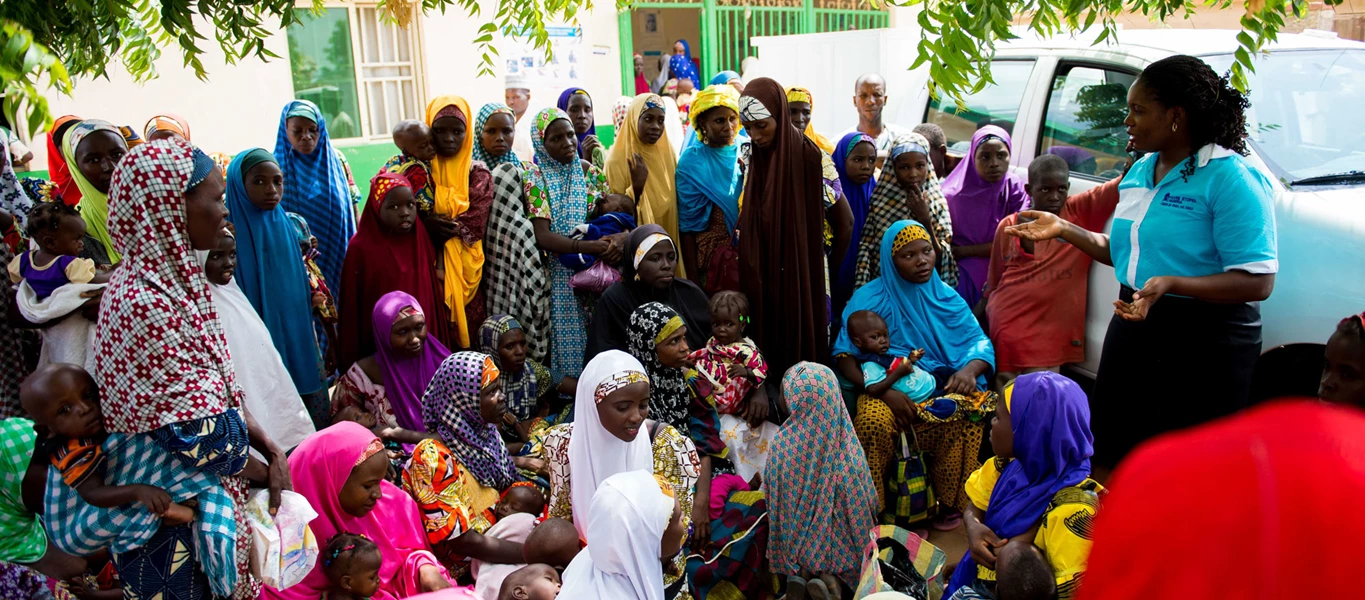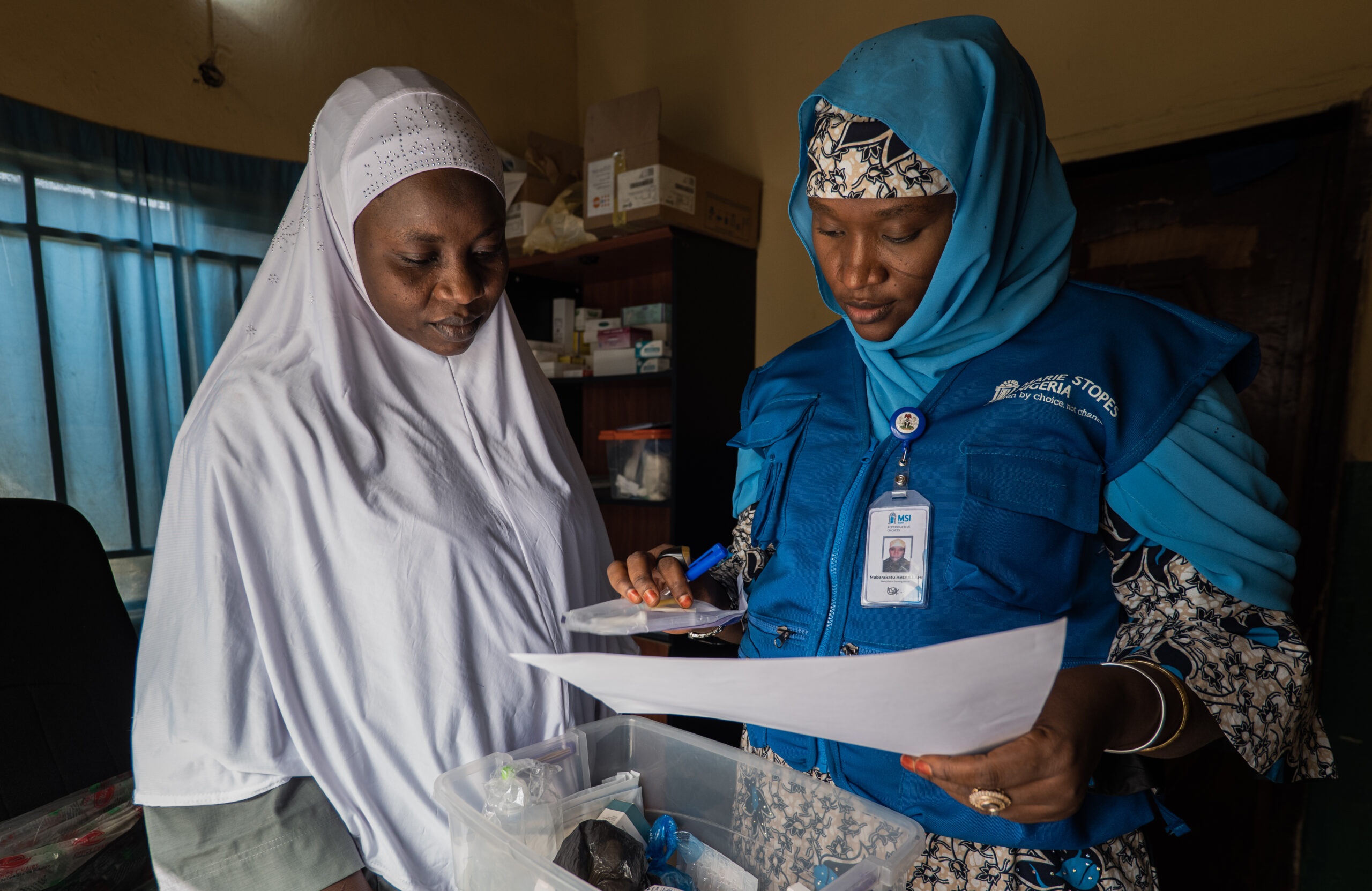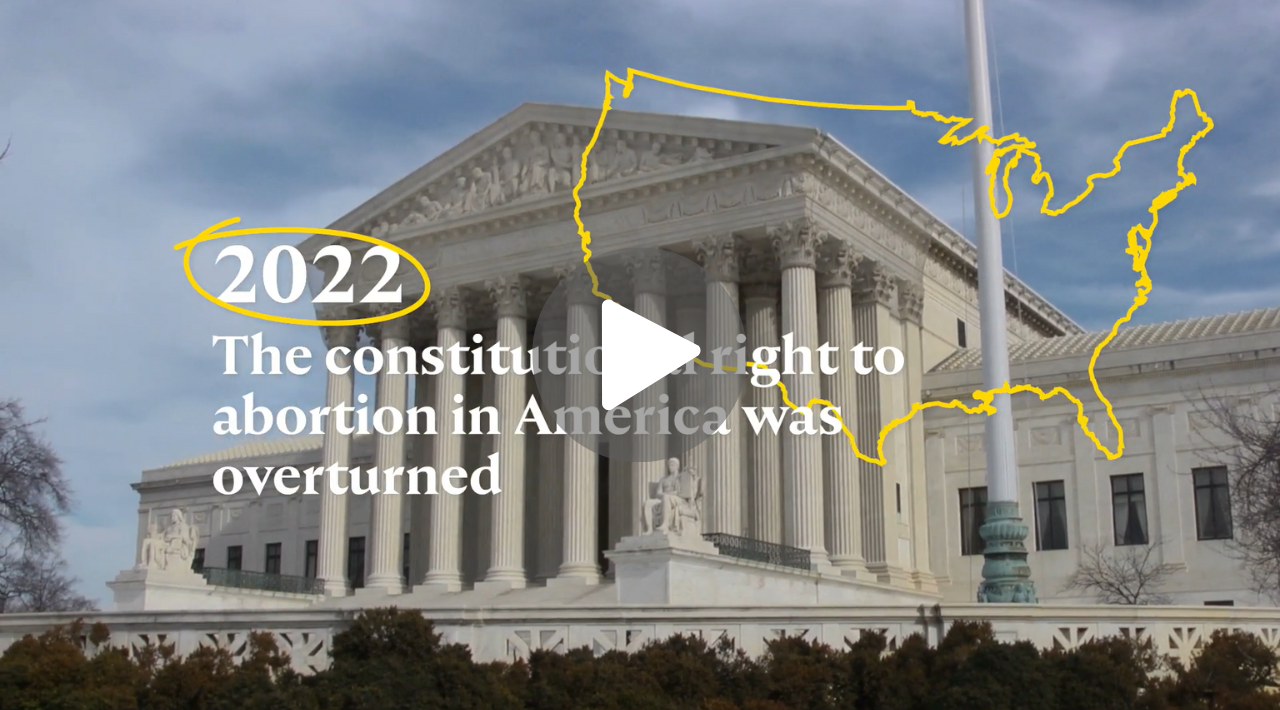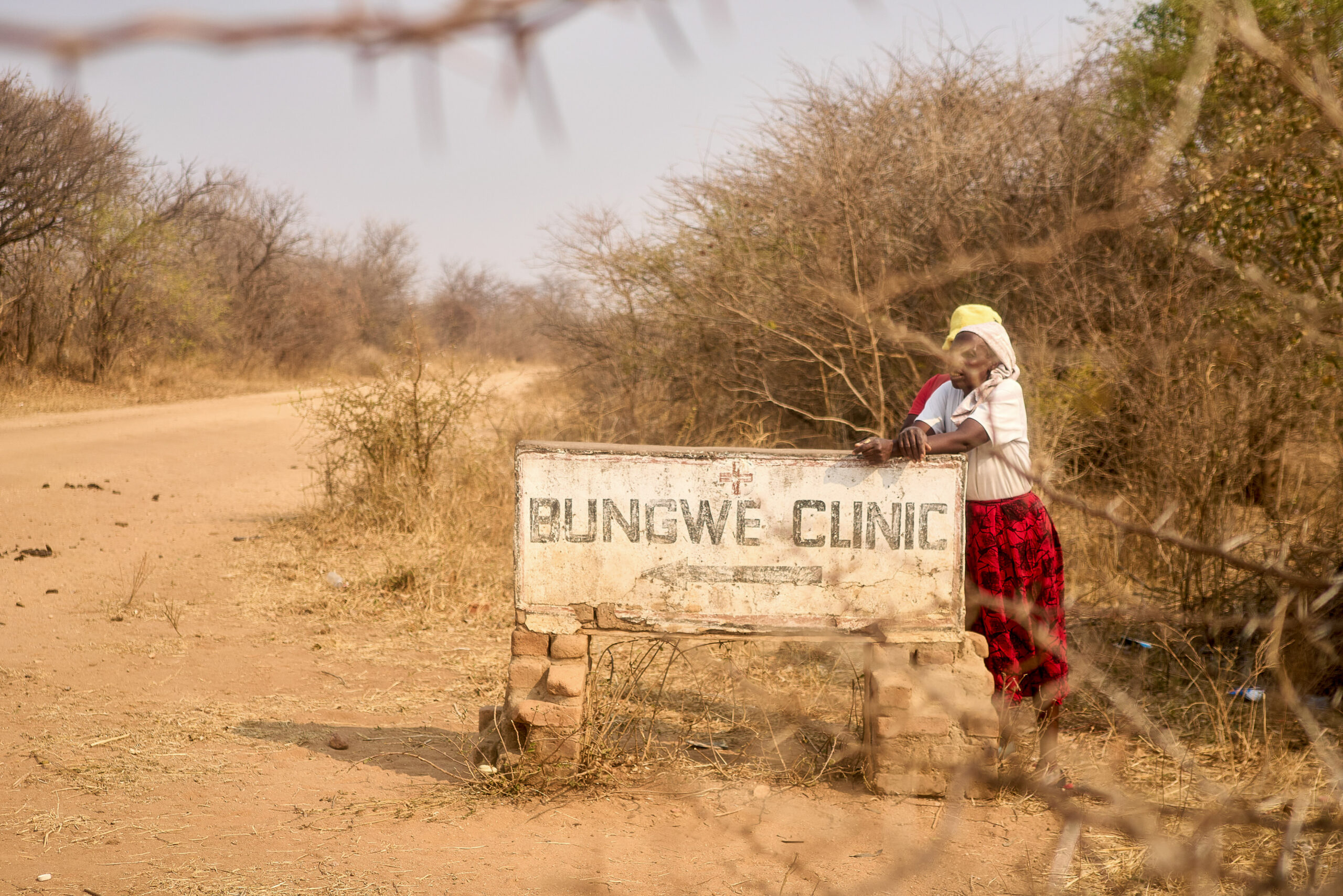“I like this job because it is an avenue to help women, which is something I am passionate about.”
If women can’t make it to our centres, outreach nurses like Faith Pyentim travel far and wide to take information and contraception directly to them.
Faith is part of an outreach team covering the north-east region of Nigeria, an area of the country troubled by war, displacement and extreme poverty. Most people here work in agriculture and many struggle to provide for their often large-sized families.
Sharing her time between the MSI Reproductive Choices’ regional office and field work, Faith travels into different communities around Gombe State and adjacent areas. She talks to women in communities and their homes about contraception and how to delay or prevent further pregnancies.
“She was 17 then, unmarried with a child at home already, and now she doesn’t have the fear of getting pregnant again.”
Faith Mwanret Pyyentim – Outreach nurse
Faith organises group counselling sessions at local community settings, where she provides women with information about contraception. This is often something that they have never had access to before. She told us that many women are interested in avoiding pregnancy, but still feel the need to access contraception secretly.
“It is because of their religion. Most women here are Muslim and believe that everything about reproductive health should be secretive. So, at the end of my sessions, the women often go away and pretend to go home and then come back again 30 minutes or an hour later, when the group has gone, to access the methods.
“It’s not that they don’t want it, but they are shy to disclose they are doing something like this because they feel their religion is against it. They even ask us to come to their house to give it to them secretly.”
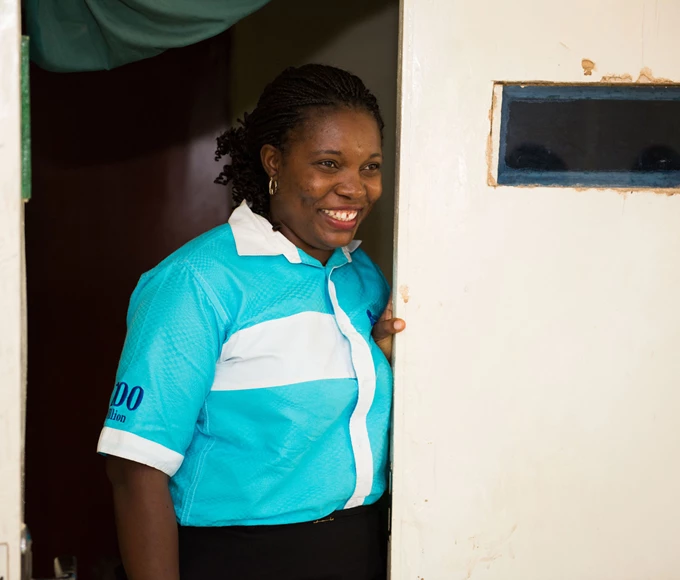
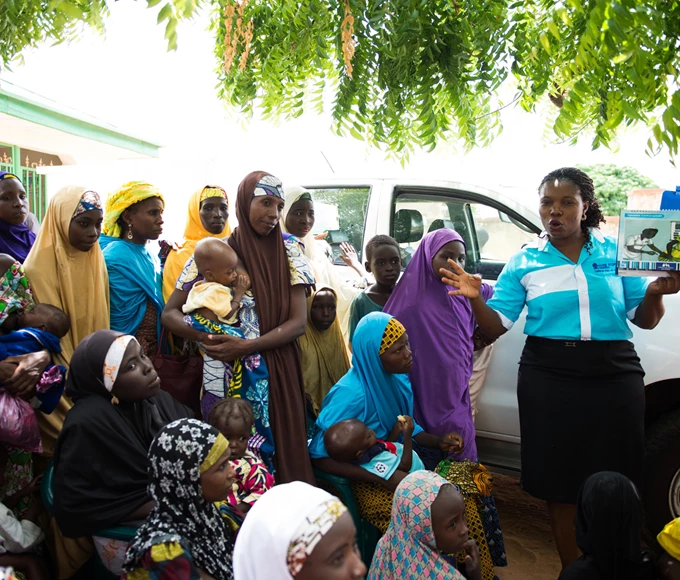
Faith also works with Nigeria’s displaced communities, with women who have had to leave their homes because of prolonged conflict in Nigeria’s Yobe region.
“We don’t have camps in Gombe as we live in a more peaceful part, but we do have some of those displaced people in host communities. They come to here to find safety and we help those women with family planning, too.
“We sometimes go out into the troubled areas as well. Last year, we went to visit the Jigawa community, and at that time, that place was not peaceful at all. But the women were rushing to come round to collect our services, even when they were being chased from their homes.”
“It was very heart wrenching. They were living in the bush or forest. But they were so afraid of becoming pregnant in such an uncertain environment. So when they heard there was family planning, they still rushed to come and get it, and then ran back to where they were hiding again.
“That shows how much these services are wanted by women here.”
“The women were rushing to come round to collect our services, even when they were being chased from their homes.”
